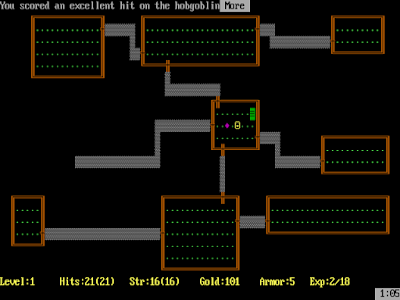Cuphead, Cruelty, and Selling Unfairness to You.

Teacher, mother,
secret lover.
When charming indie megahit Cuphead came out, I watched a ton of it on Twitch. How could I not? It's so pretty!
I wasn't planning to play it. I like to play one super-tough game a year, to show I can still game hard like the cool kidz. But I'd already played Bloodborne last year, and my aging heart won't take much more than that.
Then my wife got me a Black Friday sale XBox One so that we could play Gears of War 4 together, so I figured I might as well try Cuphead for real.
Because of what I do for a living, of course, all of the following analysis is being done to find ideas I can steal to make more money.
Yeah, Cuphead Is Really Good
It was a huge amount of fun. I played a lot by myself. A lot co-op with my teenage daughter. A reasonable amount with my 11-year old daughter. Turns out my kids can be serious hardcore "Die 50 times and keep at it!" gamers when the bad guys are saucy mermaid ladies.
What really struck me was how little watching the game on Twitch prepared me for actually playing it. This was because Cuphead constantly uses randomness (RNG, for short) better than just about any game I've ever played.

Ever notice how sometimes a character comes along and every fan artist must come up with their
own take on it instantly? I think that's cool. (Link not entirely safe for work.)
The Deadly RNG
Just about every attempt against a boss in Cuphead plays out differently from every other try. It's not only the standard Dark Souls thing where each boss has a move set and it picks an attack at random and you have to react to it. (Though it has that, of course.)
The fights are also random in every other way they can be:
Timing of the Attack - A bull is about to lunge forward to attack. It rears back. Then the amount of time until it actually launches the attack varies. Sometimes it's instant. Sometimes it's a good long pause. And sometimes the wait is so long is throws off my timing entirely and I blunder right into the attack.
Timing of Attackers - Little fireballs run across the screen. Sometimes one jumps up at you. Sometimes the pause between leapers is so long that you think the game is broke and you get complacent and BAM. And then three go all at once. (which can be evaded, but it's a rare enough occurrence that the player won't have a canned response for it.)
Random Attack Sets - In a lavish display of developer effort, some bosses have entirely different skill sets every time you launch the fight.
Multiple Simultaneous Attack Sets - The mermaid has two sets of three attacks, one set from the air and one from the water. It picks one from each set and uses them simultaneously, for nine different attacks to react to.
Random Terrain - Two fights have you battle while leaping along moving, randomly arranged platforms. To avoid an attack, you need to very quickly evaluate the routes available to you and select the best one.

This boss made my daughter cry. I hugged her. Then I beat it quickly and she was mad at me. At least we're having family time.
The End Result
This is why watching the game doesn't convey the experience of playing it. You can't get through Cuphead with patterns. Well, some fights you can. But most of the time, you have to learn how the system works, practice with it, and perform within it, adapting fluidly to surprises as you go.
Sometimes the RNG hands you a really nasty situation, but the vast majority of the time the situation you get is fair and survivable. You just have to take in the situation, come up with a plan very fast, and execute it.
The brilliance of the design is in making a system with RNG that keeps the game unpredictable and tough but still fair. I think this sort of probability manipulation is underrated as a skill in game design.
Obvious Disclaimer For People Who Are Already Yelling At Me In the Comments Anyway
Obviously, a lot of gamers don't like high challenge games. A lot of gamers don't like missions they can fail. Nothing wrong with this.
Cuphead isn't aiming for the casual market. Most of the time, I don't either. I'm looking for ways to better sell to this market.
If you're trying to write a game that will appeal to every single person everywhere, you're probably already doomed.
Unfairness Is a Selling Point
In a game like this, the occasional unfair, unescapable death is a selling point. There are some gamers for whom such a situation doesn't induce a Ragequit. It inspires a determination to excel.

If I don't kill you occasionally, how will your accomplishments have meaning?
Playing the RNG In an RPG
Darkest Dungeon is another game with great use of randomness. When you take your party into a dungeon, you can get a run of savage bad luck. If things get bad, you can pull the ripcord at almost any moment, abandon your run, and save your group (with a penalty). The skill comes in constantly evaluating your situation and deciding when it's time to give up. If you can't do that, you will have a hard time.
I've always tried to have a lot of this in my indie RPGs. I write long games, and I want to make sure it's always interesting and unpredictable and there's a chance that things can go south quickly if you're not careful.
I give enemies large move sets and make sure that they can approach a fight differently each time. I use a critical hit system to make sure you can never get too complacent. Sometimes, enemies run for help, and it's random how long they'll hang around before they do.
(If you want to see this system in action, our new game,
Avernum 3: Ruined World, is out at the end of January.)
Heck, the whole genre of Roguelikes depends on randomness of your adventure. You gamble your time and hope you get a situation you can survive.

Of course, video game accomplishments don't have meaning. My job is to create the illusion that they do.
What Is the Gain From this Randomness
Humans like to gamble, and we have loved gambling for all of our recorded history. Gambling doesn't have to be for money, and it doesn't need lootboxes.
The joy of gambling comes from the unpredictability, the increasingly rare life pleasure of being unsure what is about to happen. RNG in your game means bad luck might cause you to fail. Some people mistakenly think that this is a flaw, when it is in fact a great strength.
The ideal for my games is that, for battles of an appropriate level, there is always a tiny chance to fail. Similarly, for Cuphead, unless you're a completely superior player, there is a chance that an unexpected chain of events will outwit and defeat you.
When you lack a human opponent to provide unpredictability, randomness must serve this role and provide the surprises. This provides suspense and unpredictability. For a large portion of gamers, being surprised is a highly valued product that can be sold at a premium.

It's a leapy boi! Look at him go!
###
If you're intrigued by giant indie RPGs with epic stories and tough, unpredictable fights, you can wishlist Avernum 3
on Steam. It's out January 31. News about our work and random musings can be found on our
Twitter.







































